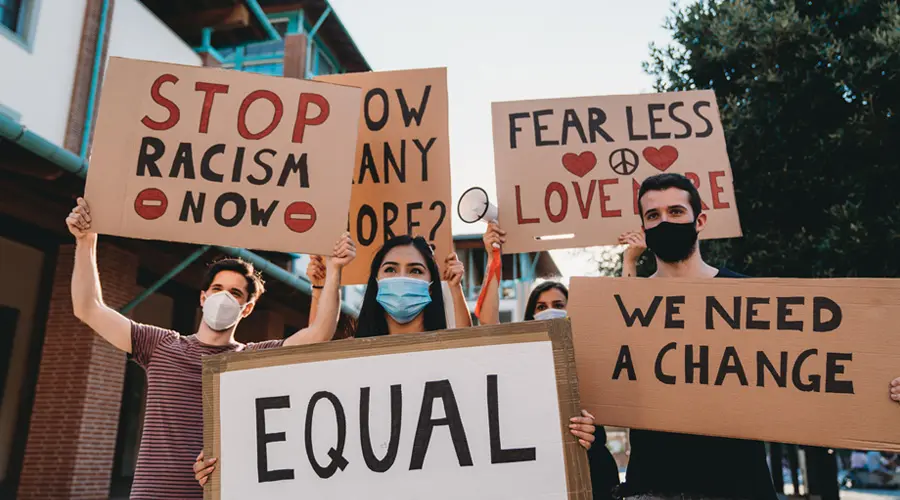On April 19, 2021, Governor DeSantis signed Florida’s HB 1, Combating Public Disorder, into law. Touted as the “strongest anti-rioting, pro-law enforcement piece of legislation” in the country, the new law increases the penalties for protestors who block roadways or deface public monuments, requires that anyone arrested at a protest be denied bail until their first court appearance, and creates new felonies for organizing or participating in a violent demonstration. In addition, it takes away civil liability protections from local governments that interfere with law enforcement’s efforts to respond to a violent protest.
When the legislation was proposed in September, 2020, Democratic lawmakers across the state protested, claiming it was unnecessary and harmful. They were joined by lawyers and civil liberties groups who claimed it would also have negative consequences for people living in Florida, such as diminishing their freedom of speech and right to protest and encouraging vigilantism against protesters.
At the time, Orlando defense attorney Jonathan Rose spoke out about the proposed legislation, stating that its goal seemed to be to diminish our rights to free speech and assembly. He also noted that the terms “disorderly” and “violent” are too broad and subjective, suggesting that the law could be applied unjustly in various contexts, and that it had “First Amendment problems all over it.”
As news that the bill had been enacted into law spread across the nation, constitutional lawyers and national civil liberty organizations echoed Mr. Rose’s criticism, claiming that the goal of the law is to make people afraid of protesting for justice. Micah Kubic, executive director of the ACLU of Florida very succinctly called it “a bill that criminalizes peaceful protest” and “harkens back to Jim Crow.”
Two days after the Combating Public Disorder bill became law in Florida, the nonprofit group, Lawyers Matter Task Force, and other plaintiffs filed a federal lawsuit in Orlando claiming that the law violates the First, Eighth and Fourteenth amendments of the Constitution. The plaintiffs argue that the law:
- Equates peaceful protesting with rioting.
- Exposes protesters and organizers to civil and criminal liability for the actions of others, regardless of their intent.
- Fails to describe what conduct constitutes inciting a riot.
- Discourages participation in protests.
- Intimidates demonstrators and organizers with punishments and denying bail until the first court appearance.
Orlando defense attorney, Jonathan Rose is watching this case closely. He believes the outcome has serious ramifications for the people of Florida and across the nation. Thirty-three other states are considering similar anti-protest bills, which could have a chilling effect on our civil liberties and the preservation of freedoms guaranteed by the Constitution. Unfortunately, Florida is taking the lead in this effort.

